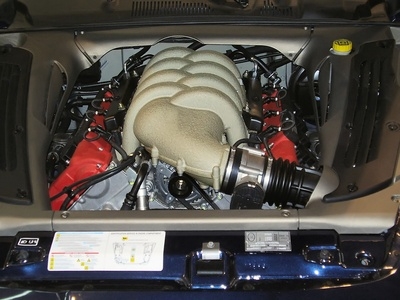
A blown head gasket is a serious automotive problem. Head gaskets used in Toyota's 3.0 engine (most commonly found in the company's pickup trucks and 4Runners) have been particularly susceptible to heat breakages which can strike at any time. A driver suspecting a problem with his engine's head gaskets should immediately take his vehicle into a mechanic for service to avoid potential catastrophic engine failure.
A blown head gasket causes the Toyota's 3.0 engine to overheat. As engine oil leaks into the coolant system through the blown gaskets, coolant efficiency is reduced and results in excess heat. The driver will notice this as a persistent climb in engine heat while the Toyota is running which spikes when the vehicle is idle. Toyota pickups and 4Runners with the 3.0 engine find it impossible to tow or carry excess weight without the engine overheating rapidly.
Toyota owners will notice white smoke emitting from the exhaust system from a vehicle with a blown head gasket. This is due to burned oil mixing in the engine block and being consumed as fuel. Alternatively, exhaust emissions may be sweet smelling which is the result of coolant mixing with fuel in the engine which may also occur with a blown head gasket. These symptoms greatly effect fuel economy for vehicles using the Toyota 3.0 engine.
According to aa1car.com, head gaskets in Toyota vehicles using the 3.0 engine are particularly susceptible to head gasket failure via normal wear and tear from heating and cooling the engine. As cracks and breakages appear in the gaskets, the driver may notice changes in his vehicle's engine oil such as viscosity or color. These changes are more than likely from coolant leaking through the gaskets and into the oil pan, causing a breakdown in oil effectiveness and ruining the engine quickly.